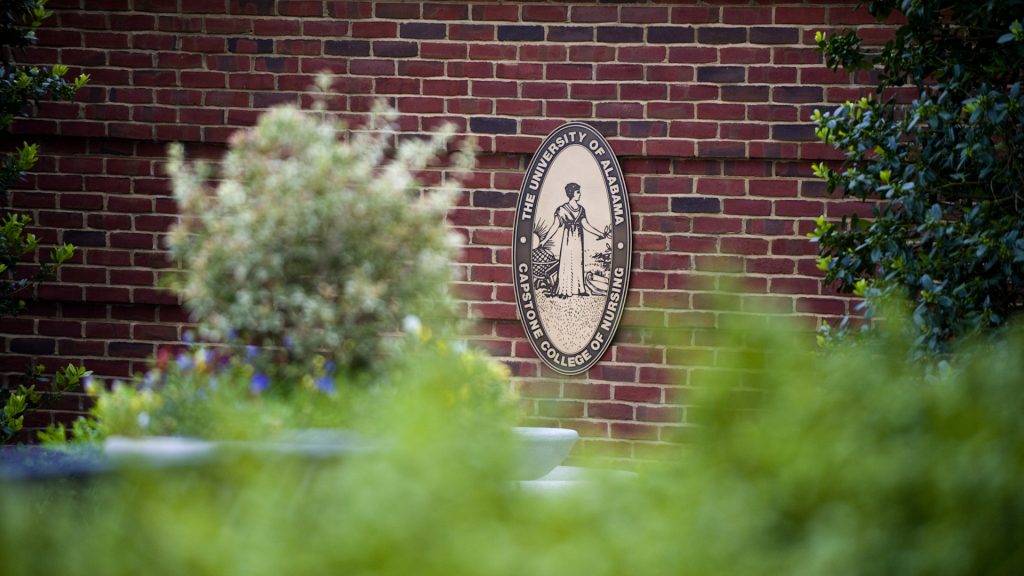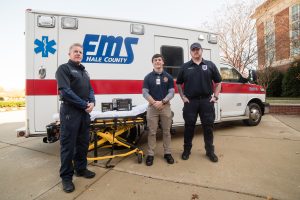
UA, Partners Aim to Improve Health in Tuscaloosa County
An effort led by The University of Alabama aims to improve health, prevent chronic diseases and reduce health disparities in Tuscaloosa County children and their families with the highest burden of chronic disease.
Funding from the Centers for Disease Control and Prevention’s Racial and Ethnic Approaches to Community Health, or REACH, program to the Capstone College of Nursing supports a community coalition among UA, Alabama Department of Public Health, Tuscaloosa Public Library, Tuscaloosa County School System and a family healthy weight program to enhance existing resources, address Tuscaloosa County’s health needs and reduce health disparities.
Assistant professors Drs. Janet Brown and Leigh Ann Bray Dayton received over $784,000 for the first year of the five-year REACH program.
Program Goals
Over the five years of the program, UA will coordinate with community partners to implement proven public health strategies for:
- Accessible healthy food choices – promoting food service and nutrition guidelines while also expanding access to existing fruit and vegetable voucher incentive and produce prescription programs.
- Safe and accessible physical activity – recommending ways to connect pedestrian, bicycle or transit transportation networks to everyday destinations.
- Family healthy weight programs – improving access to effective, family-centered, culturally relevant health behavior and lifestyle treatment programs.
- COVID-19, flu and other routine vaccines – increasing awareness, confidence, demand and access to routinely recommended adult vaccines for racial and ethnic groups experiencing disparities in immunization, including uninsured adults.
During the first year of the REACH program, the professors will assess family and community needs to better understand how to connect families to resources and determine what changes could be made in the area to encourage a healthier lifestyle.
Heart disease, cancer, diabetes and stroke are among the most common causes of illness, disability and death in the United States. They are also leading drivers of the nation’s $4.1 trillion in annual health care costs. These chronic conditions and the factors that lead to them are more common or severe for some racial and ethnic groups.
As one of 41 communities across the country included in the REACH program, the University professors plan and carry out local, culturally appropriate programs that address a wide range of health issues among racial and ethnic minority groups where health gaps remain.







 The University of Alabama’s
The University of Alabama’s 

 Dr. Mercy Mumba, Assistant Professor at the Capstone College of Nursing, grew up in Zambia, where nursing was not a well-respected profession. After moving to the United States, Dr. Mumba earned her Bachelor of Science in Nursing from the University of Texas at Arlington. Only two years after graduating with her BSN, she entered a BSN to PhD program; and four years later she graduated with a PhD from UT Arlington’s College of Nursing and Health Innovation. A passionate researcher, Dr. Mumba has a number of funded grants, most of which concentrate on preventions and treatment of substance abuse disorders and their co-morbid psychiatric mental health conditions.
Dr. Mercy Mumba, Assistant Professor at the Capstone College of Nursing, grew up in Zambia, where nursing was not a well-respected profession. After moving to the United States, Dr. Mumba earned her Bachelor of Science in Nursing from the University of Texas at Arlington. Only two years after graduating with her BSN, she entered a BSN to PhD program; and four years later she graduated with a PhD from UT Arlington’s College of Nursing and Health Innovation. A passionate researcher, Dr. Mumba has a number of funded grants, most of which concentrate on preventions and treatment of substance abuse disorders and their co-morbid psychiatric mental health conditions.